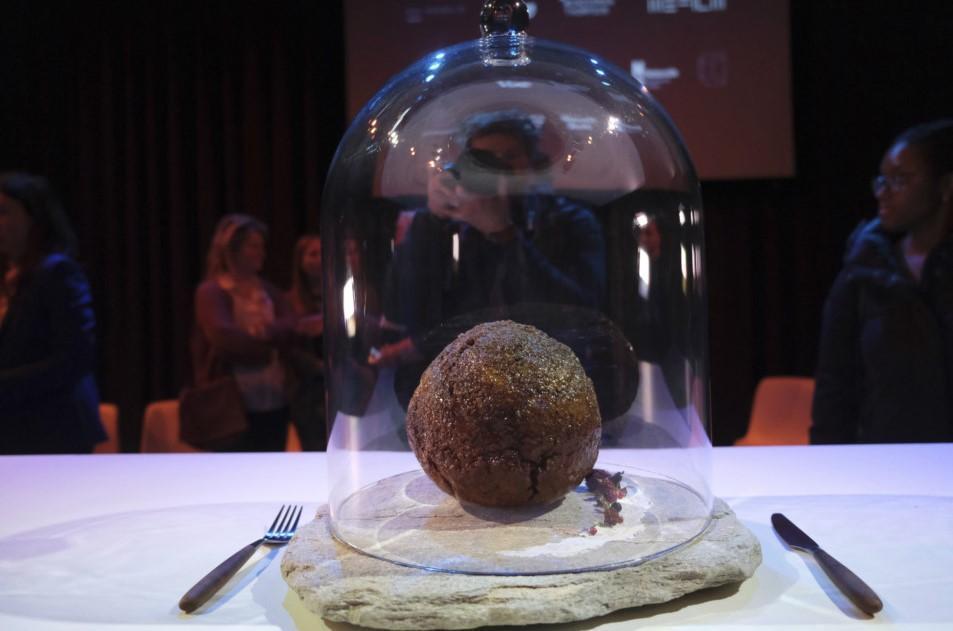
Food scientists on March 28 unveiled a giant meatball made from lab-grown flesh of an extinct woolly mammoth, saying the protein from the past showed the way for future foods.
The glistening meatball was displayed under a glass bell jar by Australian-based cultivated meat firm Vow at the NEMO science museum in the Dutch capital Amsterdam.
But it is not ready to be eaten just yet, with the thousands-of-years-old protein requiring safety testing before modern humans can tuck in.
“We chose woolly mammoth meat because it is a symbol of loss, wiped out by climate change,” Tim Noakesmith, co-founder of Vow, told AFP at the event.
Grown over a period of several weeks, the meat was “cultivated” by scientists who first identified the DNA sequence for mammoth myoglobin, a key protein that gives the meat its flavor.
Filling in some gaps in the sequence of the mammoth myoglobin by using genes from the African elephant, the mammoth’s closest living relative, it was then inserted into sheep cells using an electrical charge.
If that process doesn’t put you off, then the safety issues might.
“I won’t eat it at the moment because we haven’t seen this protein for 4,000 years,” said Ernst Wolvetang of the Queensland University’s Australian Institute of Bioengineering who worked with Vow on the project.
“But after safety testing, I’d be really curious to see what it tastes like.”
Christopher Bryant, a British-based expert in alternative proteins told AFP prospective lab-meat lovers had nothing to fear from cultured meat.
“Unlike conventional meat, which comes from dirty and unpredictable animals, cultivated meat is produced with extreme precision in sanitized food production facilities,” he said.
Italy government seeks to ban synthetic meat
Meanwhile, the Italian government on March 28 introduced legislation to ban the production and sale of synthetic foods, including artificial meat.
The new parliamentary bill “is based on the precautionary principle because today there is no scientific evidence of possible harmful effects linked to the consumption of synthetic foods,” said Health Minister Orazio Schillaci, at a press conference following a cabinet meeting that gave the green light to the initiative.
Fake meat has long been produced, with varying degrees of success, from vegetable sources like soya, peas or beans.
But the new legislation targets synthetic products being developed in laboratories from animal cells, without killing the donor animal.
If the ban is approved by parliament, penalties for violators would include fines of up to 60,000 euros.